Mental Health Documents
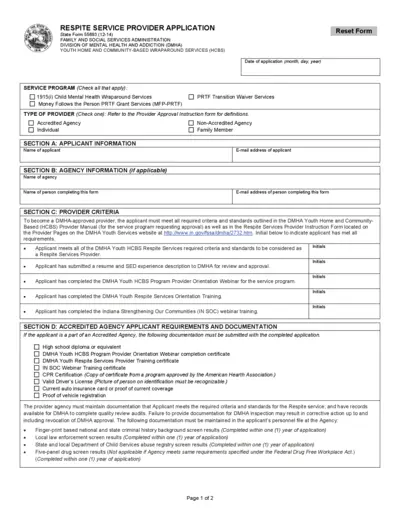
Mental Health
Respite Service Provider Application Form
The Respite Service Provider Application Form is designed for individuals and agencies applying to become a DMHA-approved provider. It ensures compliance with necessary guidelines and standards. This form is essential for those offering respite services to youth under the DMHA.
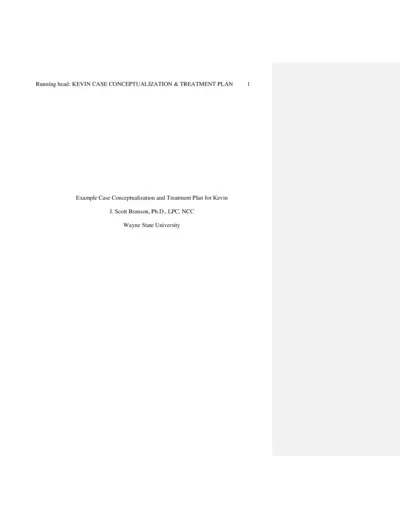
Mental Health
Kevin Case Conceptualization and Treatment Plan
This file provides a comprehensive case study for a client named Kevin battling alcohol use. It outlines Kevin's history, client culture, and treatment plan details. Essential for mental health professionals and students studying addiction treatment.
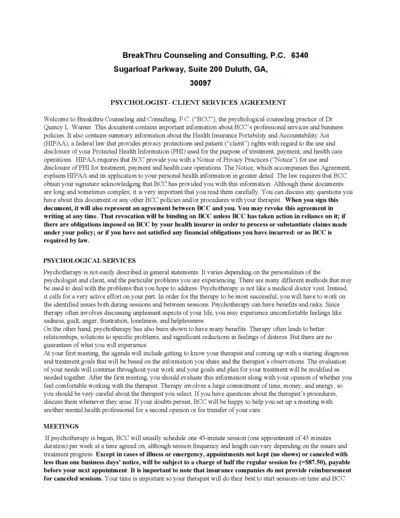
Mental Health
Psychologist Client Services Agreement
This file outlines the client services agreement for BreakThru Counseling and Consulting. It contains critical information on psychological services, financial policies, and client rights under HIPAA. Understanding this agreement is essential for clients seeking psychological services.
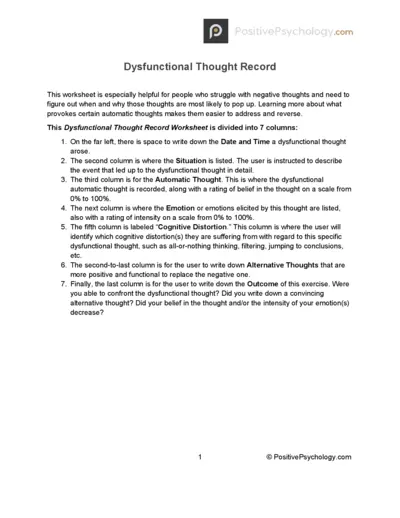
Mental Health
Dysfunctional Thought Record Worksheet for Positive Thinking
This worksheet helps individuals identify and challenge negative automatic thoughts. By understanding the triggers of these thoughts, users can work on reversing these cognitive distortions. Perfect for enhancing mental well-being and fostering positive thinking strategies.
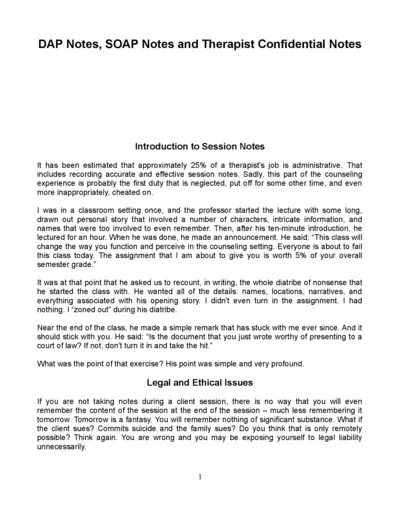
Mental Health
Essential Guidelines for Effective Counseling Notes
This file provides comprehensive instructions on taking effective counseling notes. It emphasizes the legal and ethical importance of documenting client sessions. Ideal for therapists seeking to enhance their note-taking practices.
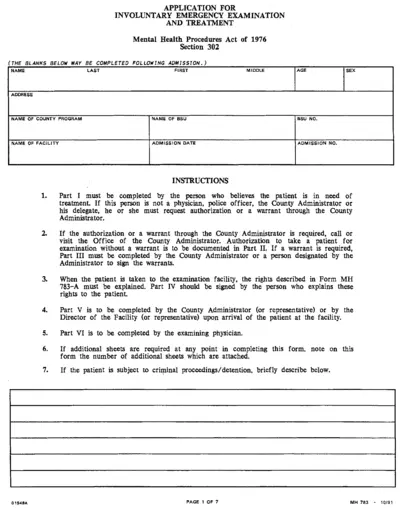
Mental Health
Involuntary Emergency Examination and Treatment Form
This form is used to request an involuntary emergency examination and treatment for individuals believed to be severely mentally disabled. It outlines the necessary steps and procedures to ensure that the patient's rights are respected and that proper evaluation can take place. Completing this form is essential for legal compliance and the safety of the individual in need.
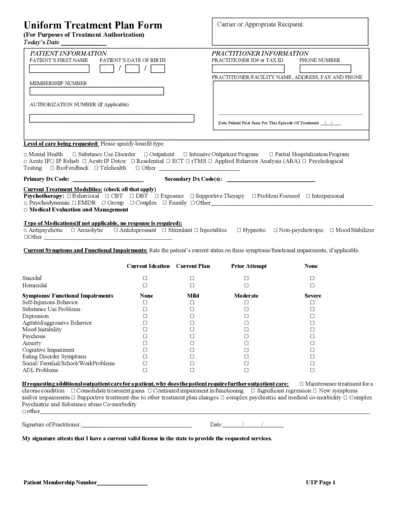
Mental Health
Uniform Treatment Plan Form for Treatment Authorization
This form is essential for documenting treatment plans for patients seeking mental health services. It guides practitioners in providing necessary information for treatment authorization. Utilize this structured template to ensure comprehensive care documentation.
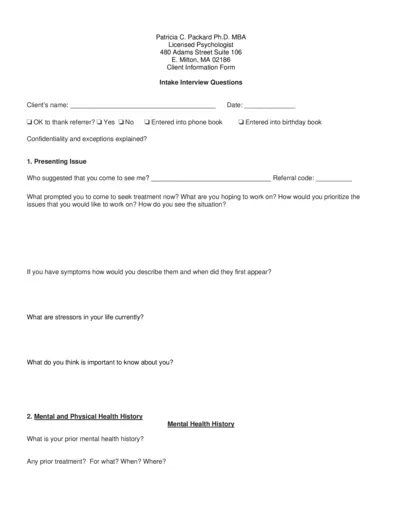
Mental Health
Client Information Form - Psychological Intake
This file is designed for clients to provide their information and mental health history. It helps psychologists understand the client's needs. Complete the form accurately for effective treatment planning.
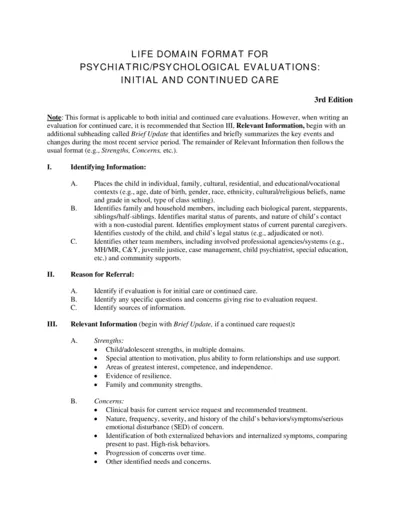
Mental Health
Life Domain Format for Psychiatric Evaluations
This file provides a detailed format for conducting psychiatric and psychological evaluations for children and adolescents. It includes guidelines for both initial and continued care evaluations, ensuring comprehensive assessment and support. Perfect for professionals in mental health and child welfare to facilitate effective evaluations.
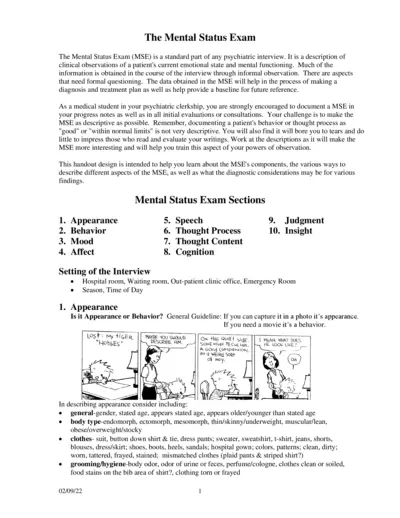
Mental Health
Mental Status Exam Guidelines for Psychiatric Interviews
This file provides a detailed overview of the Mental Status Exam (MSE) used in psychiatric interviews. It includes instructions on documenting various components of the MSE for accurate diagnosis and treatment planning. Ideal for medical students and professionals to enhance their observational skills in mental health assessments.
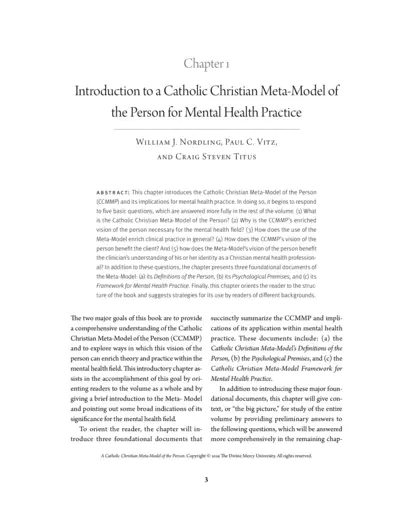
Mental Health
Catholic Christian Meta-Model of the Person for Mental Health
This file presents the Catholic Christian Meta-Model of the Person (CCMMP) and its significance in mental health practice. It addresses fundamental questions about the nature and application of the Meta-Model. This introductory chapter sets the stage for deeper exploration within the mental health field.
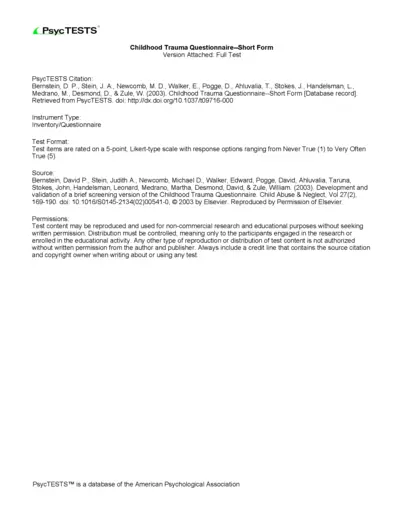
Mental Health
Childhood Trauma Questionnaire Short Form
This file contains the Childhood Trauma Questionnaire Short Form, a tool for assessing childhood trauma. It includes a series of questions structured to identify emotional, physical, and sexual abuse experiences. Researchers and clinicians can use this inventory to gain insights into an individual’s trauma history.